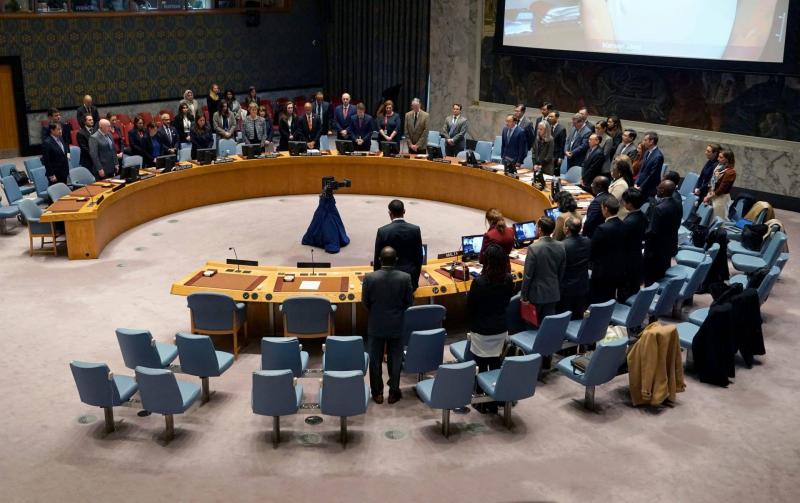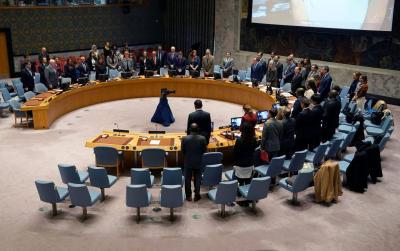The UN Security Council expressed deep concern today, Sunday, regarding reports of the "Nablusi Roundabout massacre," which resulted in over 100 deaths and hundreds of injuries due to Israeli shelling while people gathered around a aid convoy last Thursday. The council, in a statement on Sunday, called on Israel to immediately facilitate the delivery of sufficient humanitarian aid to civilians throughout the Gaza Strip. It added that there are concerns about the 2.2 million residents of Gaza facing food insecurity due to the war. The council urged Israel to keep border crossings open for aid to enter Gaza and to facilitate the opening of additional crossings to meet humanitarian needs. This comes as the United Nations has repeatedly warned in recent weeks of the risk of famine in the Gaza Strip.
UN: A Quarter of Gaza's Residents Suffering from Famine
The UN has hinted multiple times that Israel is using hunger as a weapon in the besieged and densely populated territory. Since the outbreak of war in the coastal enclave, home to over 2.4 million Palestinians, Israel has imposed a stringent blockade, preventing thousands of relief trucks from entering at the border with Egypt, before allowing a very limited amount to enter, which is insufficient to meet the humanitarian needs. Relief trucks belonging to UNRWA have also been targeted multiple times, prompting the agency to halt the delivery of aid, especially towards the north for about a month. The UN confirmed that a quarter of Gaza's population is now just one step away from famine.
Impending Ceasefire
This statement comes as the Israeli war on Gaza enters its sixth month in just a few days, resulting in over 30,000 casualties. Amid international calls for an immediate ceasefire, an American official reported on Saturday that the fate of a proposed ceasefire in Gaza depends on Hamas agreeing to release "a specific group of prisoners," after Israel largely accepted the outlines of the agreement. The official, speaking to reporters on condition of anonymity, stated that the ball is now in Hamas's court, adding that the framework is in place, and has been practically accepted by the Israelis. He noted that a ceasefire lasting six weeks in Gaza could begin today if Hamas agrees to release a specific group of at-risk prisoners. Meanwhile, talks between Hamas and the Israeli side began weeks ago based on a preliminary document agreed upon in Paris last month, but obstacles have prevented a resolution and new ceasefire in the besieged territory, primarily the issue of the return of displaced persons, as well as the release of a number of Palestinian prisoners who face lengthy security sentences in Israel.




